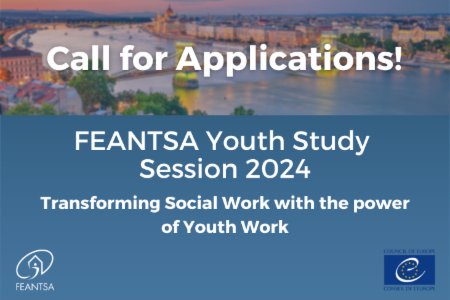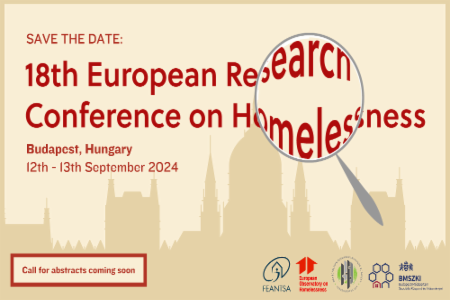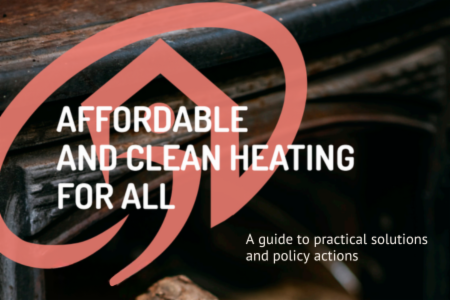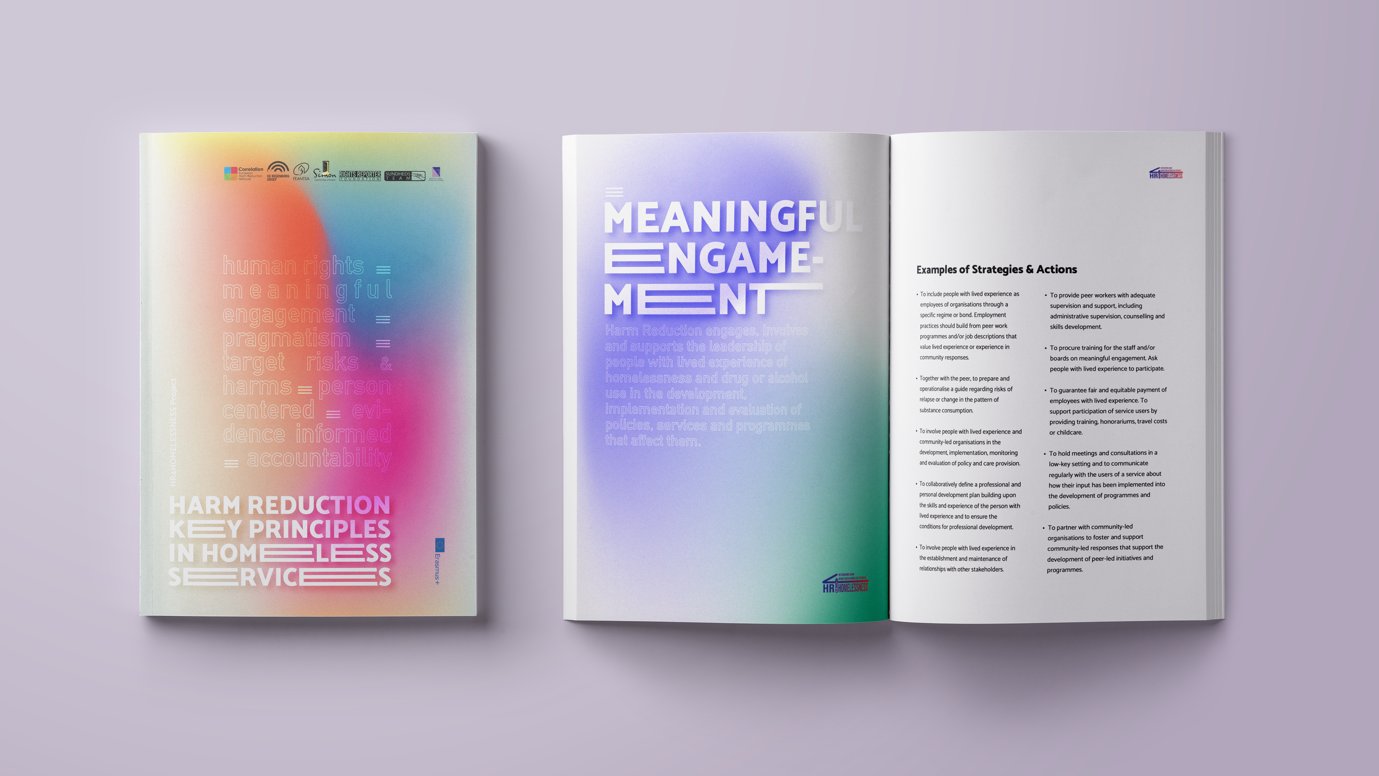
Check out the HR Key Principles, our key innovative output which translates the learnings of the HR4homelessness project into guidance for homeless and other services who support people in homelessness
The HR Key Principles translate the learnings from the ‘HR4homelessness’ Project, which brought together homeless and bustance use services, into guidance for homeless services to improve support provision for people who use drugs and/or alcohol.
For each of the seven principles, strategies for improving support provision are described as well as existing good practices. We provide suggestions for tools that can be helpful for staff and service users, suggestions for further reading and link you up to the respective training video(s). The seven principles are:
- Human Rights based service provision: HR aims at establishing quality of individual and community life and well-being – not necessarily abstinence of all drug use – as the criteria for successful actions and policies. HR calls for a non-judgmental, non-coercive access to support and care.
- Meaningful engagement of service users: HR engages and involves people with lived experience of homelessness and substance use in the development and evaluation of policies, services and programs that affect them. This is essential for achieving good social and health outcomes and addressing unmet needs.
- Reduce risks and harm: HR focuses on reducing the harms related to substance use for the individual and the broader community. It takes into account factors that may exacerbate vulnerability such as trauma, incarceration history, racism, social disadvantage, housing status, age, sexual orientation and gender.
- Take on a pragmatic attitude: HR accepts that licit and illicit substance use is part of our world. HR reflects the idea that none of us will ever achieve perfect health behaviors and that 'perfect' health behaviors are impossible to define as they are shaped by social determinants and norms.
- Person Centered Services: HR services focus on responding to the needs, preferences and values of the individuals and communities they work with. This includes the recognition of the social conditioning of health outcomes, addressing power relationships between care providers and service users, and the promotion of communication and shared decision-making.
- Evidence-based services, strategies and policies which are relevant and effective to the communities they serve and which are regularly evaluated and, if necessary, adapted.
- Accountability: HR aims to minimize not only the negative health and social impacts associated with drug and alcohol use, but also the harms caused by respective policies, laws, services, and institutional practices. HR promotes processes and systems designed to hold individuals and groups in check for their decisions and actions.
You can access the 'HR Key Principles' in the download section on the right.
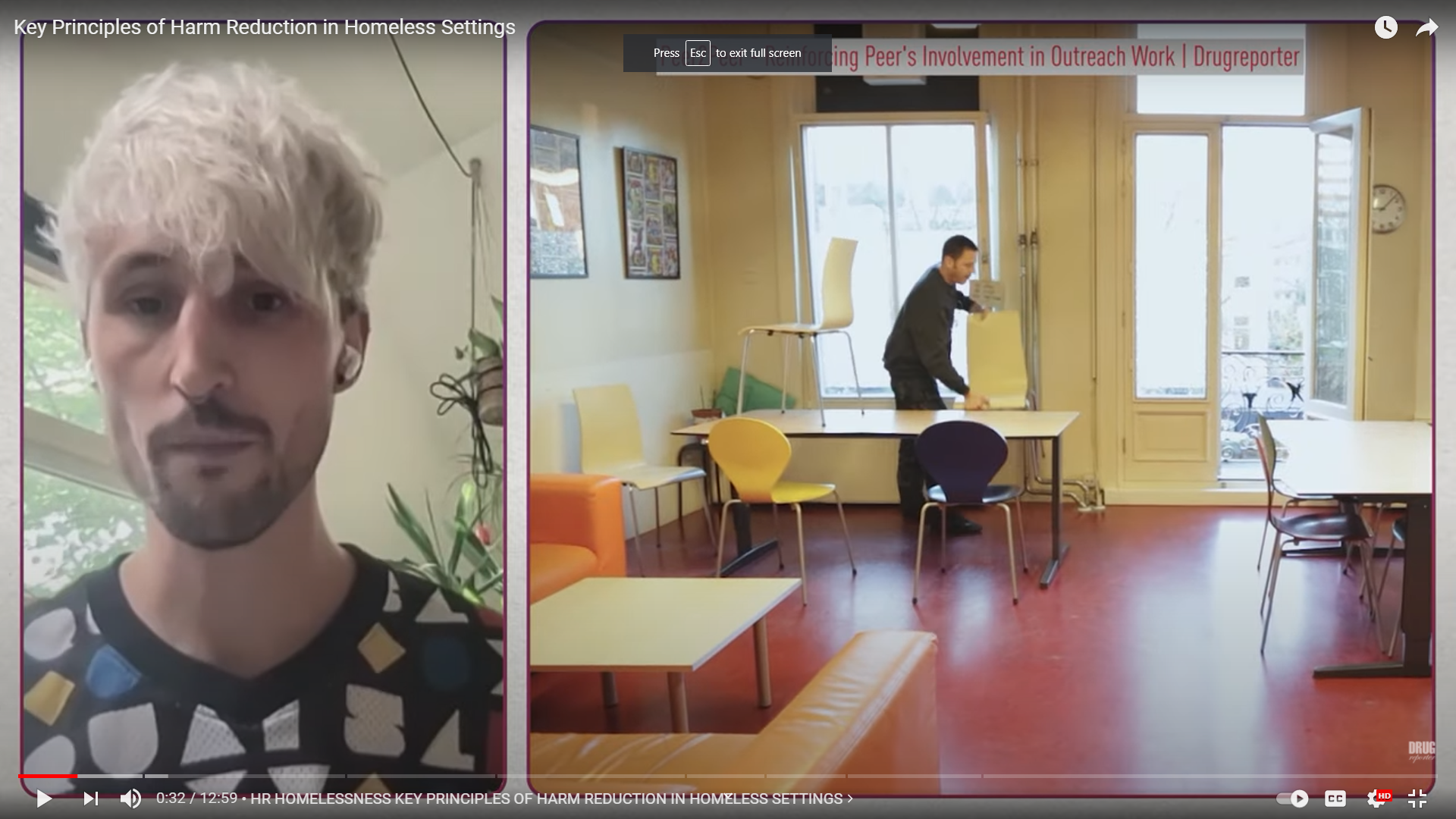 >>> Want to get the The Key Principles explained to you by our experts? Check out the HR Key Principles VIDEO >>
>>> Want to get the The Key Principles explained to you by our experts? Check out the HR Key Principles VIDEO >>
The video summarizes the learnings and message of the HR4homelessness project in seven Key Principles of Harm Reduction (HR) in homeless service settings (see below). Each principle is explained by an expert. The video was produced by our project parter Rights Reporter Foundation with contributions from all partners.
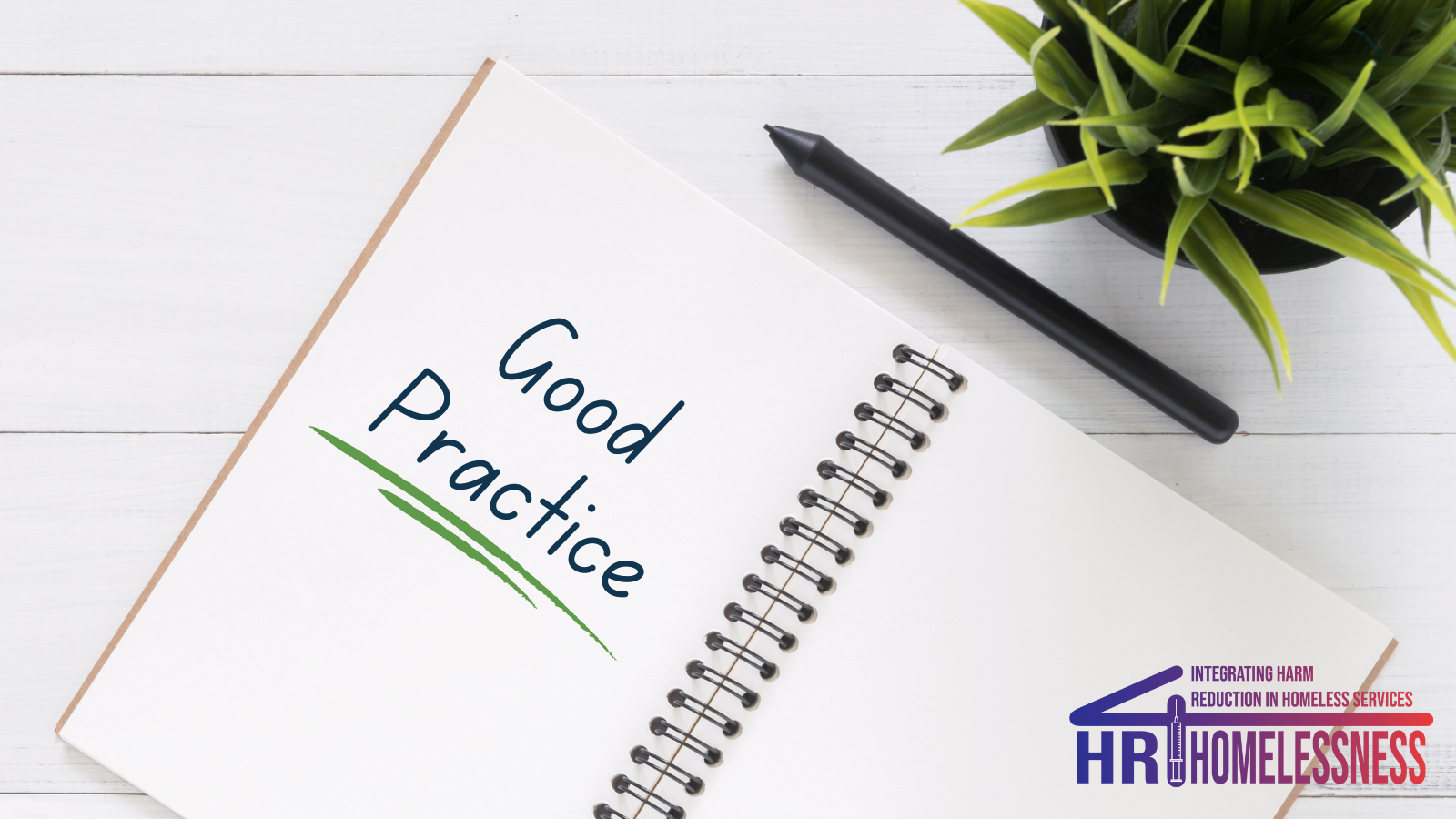
Discover the HR4homelessness Rescource Hub & Good Practice Collection
The main goal of the Resource Hub & Good Practice Collection is to support homeless and other support services, who work with people in situations of homelessness who use drugs and/or alcohol in a non-recreational way, to improve drug and alcohol use related and Harm Reduction based support provision. The Resource Hub provides a comprehensive collection of relevant publications, including scientific literature, practice-oriented guidelines and manuals, tools for staff and service users as well as educational videos and advocacy-oriented documents in one single place. The Resource Hub Content List enists all resources contained in the Hub and allows to search and filter for specific resource types such as reports, practice-oriented manuals and guidelines, tools for support staff and service users, educational videos, and statistics. Resources are mainly available in English and other languages.
The Good Practice Collection presents eleven good practice services from different Eurpean countries which aim at inspiring service providers to improve existing support provision. Each Good Practice Portrait describes the main characteristics of the service and why it was selected as good practices. Furthermore, a link to the organisation’s website and details of the respective contact person are provided. The Collection addresses service managers and coordinators as well as frontline and second-tier support staff.

Key outcomes of the Belgian Multiplier Event - more service collaboration, destigmatisation and making people who use drugs/alcohol 'actors of their life (again)'
41 participants joined the Belgian multiplier event entitled ‘How to improve Harm Reduction services for people who use drugs/alcohol in situation of homelessness?’. Almost half of participants are working with homeless services, a third is working with drug and alcohol use specialist services.
The multiplier event was jointly organized by FEANTSA and SMES-B, a Brussels-based health and substance use expert service. SMES accompanies people experiencing homelessness, and social marginalisation, who have substance use and mental health support needs. SMES is also partner in the Brussels Housing First programme, providing social and health support, including drug use support, for rehoused people.
Ruth Kasper, HR4Homelesss project coordinator, presented the project, the overall aim and specific objectives as well as the contribution of the activities and outputs. Particular attention was given to the ‘HR Key Principles’, the Resource Hub, and the Good Practice Collection and how they can help services improving HR provision for PWUD in homelessness.
The project presentation was followed by three expert contributions which addressed the question how to provide better and more effective HR support to people experiencing homelessness, each one from a different angle. First, Mathieu de Baker, director of SMES, presented SMES’ integrated support model which ensures users are provided with health and mental health support, substance use related support, and, when available, housing, through an integrated, person-centred model. Housing is key to stabilise the overall life situation of the person who use drugs (or alcohol) during a situation of homelessness which substantially reduces health harms. SMES’ model does not only involve health and social support professionals but also aims at involving informal support such as neighbours and friends (and, if necessary, support building informal support networks). Christopher Collin, director of Dune asbl, very much emphasised the need to first stabilise health so that the person can become ‘actor of their substance (alcohol) use’. Dune is a Brussels-based drug use and HR specialist service who largely supports people who use drugs in situations of homelessness. Christopher provided detailed insights into how HR support for people in homelessness should look like and what are the practical implications of effective HR support. Patrick McKay from the homeless service provider Turning Point Scotland shared his experiences from introducing HR as general approach in homeless services and within a Housing First programme. Turning Point does not require service users to be abstinent, the only expectation is no drug paraphernalia are lying out upon the visits of the support teams. The pilot programme showed about half of all service users had an improvement in relation to dependency of substances (including alcohol). Rehoused service users identified peer workers as being key within their recovery.
Participants split up into smaller discussion groups to discuss concretely what can be done to improve HR support for people experiencing homelessness- in the respective service they work with and in Belgium. Stronger collaboration with local support services, including with the police, and the need to destigmatise drug use came out as key factors to improve HR service provision.
The event closed with a detailed presentation of the European and Country Reports, including the outcomes of the European survey on current HR provision for people experiencing homelessness, and the synthesis of drug/alcohol use among people in situation of homelessness and their access to support services in the partner countries.
The presentations are also available in the 'download section'. For any further information, please contact project coordinator Ruth Kasper.
 Check out the HR4H European Report and learn about effective support models for people who use drugs and/or alcohol in situations of homelessness, including Housing First, Drug Consumption Rooms and other models of integrated care
Check out the HR4H European Report and learn about effective support models for people who use drugs and/or alcohol in situations of homelessness, including Housing First, Drug Consumption Rooms and other models of integrated care
The European Report provides a comparative synthesis of the Country Reports and presents and discusses the results of a Europe-wide survey among homeless and other relevant services on current HR service provision (see also previous blog post on this page). The comparison of the Country Reports particularly looked at commonalities and differences of relevant policies, policy strategies and strategies of service provision which are relevant in terms of drug/alcohol use and homelessness. The European Report identified common characteristics of service provision for people with experience of homelessness who use drugs/alcohol and identifies the denominators of successful interventions, strategies and practices. Specific intervention models, which have proven to be effective for people in homelessness who use drugs/alcohol, are described. Barriers to better support for people who use drugs/alcohol in situations of homelessness are discussed as well as systemic barriers. Based both on the ‘learnings’ and outcomes of the document and data analysis presented in the Country Reports and of the European survey, part 2 of the European Report provides specific recommendations for local, regional, national, and EU-level policy makers and homeless service providers on how to improve HR services and support services for service users who use drugs/alcohol.
The first part of the European Report contains detailed data from several European countries on current levels of drug and alcohol use related support by different types of services (homeless services, drug/alcohol use specialist services, general social services, health services).
Widespread networks of drug and alcohol use related services and priority access to inegrated care path for people in homelessness & challenges of providing for the most vulnernable
Learn more about the current situation on substance use among people in homelessness and HR service provision in the Country Report Netherlands
A growing number of people in the Netherlands experiences homelessness. At the same time, the share of people who reported drug use during their situation of homelessness is growing too: In 2018, 18% of people in homelessness reporting drug dependence behind their experience of homelessness.
While drug and alcohol use services are well established in the Netherlands, including a widespread network of Drug / Alcohol Consumption Rooms and substance related specialist outreach services, specific groups, especially young homeless people and homeless people with a non-western migration background struggle to access drug use related services and lon-term treament.
This report discussed the tensions between the well-advanced Dutch drug use specialist service network, which even gives priority to people in situations in homelessness as well as to an integrated care path, and the challenges due to changing profiles of people who use drugs and alcohol who, due to their multiple vulnerabilities, continue to struggle to access effective support.
 Strong development of Harm Reduction, including DCRs and outreach drug use related services in Denmark
Strong development of Harm Reduction, including DCRs and outreach drug use related services in Denmark
Learn more about the current situation on substance use among people in homelessness and HR service provision in the Country Report Denmark
Denmark has seen a strong development in terms of Harm Reduction services in the past 20 years, which also led to the establishment of five drug consumption rooms and extensive outreach health services. However, outside the big cities the establishment of HR and outreach services have been rather slow.
A key element that has had an impact on homeless and other services who support people in homelessness is the demographical change: Whereas in the early 2000s, most people in situation of homelessness were of Danish origin, homelessness has been affecting more and more persons with migrant background. The lack of a regular residential status limits the person’s access to health care (apart from emergency care) which jeopardizes support provision for people in homelessness of who many have diverse health needs, also related to drug and alcohol consumption. The prevalence of drug and alcohol use among people in situations of homelessness is very high in Denmark (66% according to Benjaminsen et al. 2019). Furthermore, rehousing people into permanent accommodation remains one of the main challenges to ensure effective detox and drug/alcohol use related treatment.
 Drug use and homelessness are strongly associated in Portugal
Drug use and homelessness are strongly associated in Portugal
Learn more about the current situation on substance use among people in homelessness and HR service provision in the Country Report Portugal
In Portugal, support for people who are homeless and use drugs has been significantly improving during past years through the establishment of drug use services based on the highly effective and evidence-based Harm Reduction approach, the adaption of an innovative intervention model at national level, and the establishment of ‘Help Desks for People Who Use Drugs’ which provide low-threshold methadone programmes and wrap-around social support without limitation of time. However, despite the fact that an considerable share of people in homelessness use drugs (41% refer to drug use as principal cause for becoming homeless), homeless services, in particular temporary and emergency accommodation providers, continue to follow an abstinence-based approach which creates substantial barriers to service access and jeopardises treatment take-up for homeless people who use drugs.
 Drug use and homelessness- a complex causal relationship
Drug use and homelessness- a complex causal relationship
Learn more about the current situation on substance use among people in homelessness and HR service provision in the Country Report Ireland
In Ireland, homelessness has increased substantially since 2013. A distinction is drawn between those experiencing long-term homelessness with often more complex needs and groups of people who have been in homelessness since a shorter period, of which many are families in emergency accommodation. People in homelessness were found to be much more likely to use drugs and to develop problematic drug use (compared to the domiciled population). Drug use can be a factor for becoming homeless or can also be commenced by people who are homeless as a coping mechanism, furthermore, drug use can be exacerbated by homelessness.
 Strong increase of NPS and reduction of HR services- in Hungary, homeless services have become even more important to support people who use drugs in homelessness
Strong increase of NPS and reduction of HR services- in Hungary, homeless services have become even more important to support people who use drugs in homelessness
Learn more about the current situation on substance use among people in homelessness and HR service provision in the Country Report Hungary
We are launching the first of a series of Country Reports which analyse the current situation of substance use among people in situation of homelessness, more especifically, the availability of and access to Harm Reduction services as well as barriers. They also provide an analysis of the relevant health, homelessness, and social policies.
Drug use in Hungary in the past decade has been strongly impacted by the sharp increase of the use of New Psychoactive Substances (NPS) and the reduction of HR services. The latter is the result of the changes of the overall political context which resulted in the increasing criminalisation of drug use and homelessness and the reduction of financial resources for HR service providers. The two biggest HR programmes in Budapest, which also supported people in homelessness, had to close in 2014. Homeless services have become more important for reaching out to people who use drugs. The cheap and easily available NPS have become the preferred choice for marginalised groups, especially among young people in situation of homelesses. This also requires new service reponses.
Continue reading the Full Country Report Hungary here.
Proving popular - the HR4Homelessness TRAINING on improving HR support for people in homelessness was a real success!

The series of 6 webinars, which together form the HR4homessness training, was a real success with 120+ participants who joined from ten European countries.
Each session provided input from experts as well as possibility for exchange on a practical level, small-group discussions and learning from existing good practice. The sessions cover the following topics- see below. Due to the big interest in the webinar series, the partnership decided to make the training publically available. You can access the recordings of each session below.
Session 1- Framing drug use and homelessness > recording
- Introduction HR4Homelessness Project: Project Goals, context, results of the European survey on current HR service provision for people in homelessness – Ruth Kasper, FEANTSA, project coordinator
- Framing and Construction of Homelessness – Wayne Stanley, National Spokesperson for the Simon Communities of Ireland
- Framing and Construction of Drug Users and Drug Use– Roberto Perez Gayo, European Harm Reduction Network
Session 2 - Harms, risks and vulnerabilities associated with specific substances
- A Brief History of HR and its relationship to community-led movements – Katrin Schiffer, Network Coordinator, European Harm Reduction Network > recording
- Harm, Risk & Vulnerability – Roberto Perez Gayo, European Harm Reduction Network
- Harms, risks, and vulnerabilities for specific substances:
- New psychoactive substances (NPS) – Eliza Kurcevic, Eurasian Harm Reduction Network > recording
- Opioids & Stimulant |Heroin & Cocaine – Jorn Dekker, Drop-in Center Coordinator & Drugs Consumption Room Coordinator, De Regenboog Groep (NL) (no recording available)
- Party & Recreational Settings Drugs – Willem van Aken, Prevention Worker, Nightlife Settings Outreach & Peer Education, Jellinek (NL) > recording
Session 3 - HR Interventions for Homeless Services
- Introduction – Roberto Perez Gayo, De Regenboog Groep (NL) > recording
- Overview of HR Interventions for Homeless Services – Filipe Costa Miranda, Director of Services Norte Vida, psychologist (PT)
- Specific HR interventions:
- Alcohol Managed Programmes - Marit Postma & Kathleen Dekkers, De Regenboog Groep (NL) > recording
- HIV/HCV Community Testing, Counseling & Treatment- Jonas Demant, Users Academy (DK) > recording
- Outreach, NSP & Mobile Services- Henrik Thiesen, MD & Director of the Health Team City of Copenhagen & Sandra Vieira, psychologist, outreach team Norte Vida (PT) > recording
Session 4 - The role of peer involvement in HR support provision > recording
- Introduction – Roberto Perez Gayo, De Regenboog Groep (NL)
- Peer2Peer Harm Reduction Practices. HR ‘from Below’ – Tait Mandler, University of Amsterdam
- Meaningful Involvement of PWUD / People Experiencing Homelessness - Mat Southwell, Project Coordinator, EuroNPUD
- Good Practice Example of Involvement #1 + Discussion - Henrik Thiesen, Director Health Team City of Copenhagen
- Good Practice Example of Involvement #2 + Discussion – Gerry Rolfe, Homeless Health Peer Advocacy Trustee, Groundswell (UK)
Session 5 - Drug Use & Homelessness: Intersectional Frameworks
- Harm Reduction & Intersectionality – Roberto Perez Gayo, De Regenboog Groep (NL)
- Intersectionality and specific user groups: Homelessness , Drug Use and…
- Gender – Aura Roig, Director Meztineres- Women who Use Drugs Surviving Violences (ES) > recording
- Migration – Ewa Wielgat, De Regenboog Groep (NL) > recording
- Physical & Neural Diversity – Filipe Costa Miranda, Director of Services Norte Vida, psychologist (PT) > recording
Session 6 - Advocacy work in the context of drug use & homelessness > recording
- Advocacy Tools & Methods for Harm reduction & Homeless Services – Peter Sarosi, Executive Director, Rights Reporter Foundation (HU)
- Common Topics of Advocacy (break-out rooms, no recordings available)
- Final Session: Perspectives & Outlooks – Roberto Perez Gayo, European Harm Reduction Network
For access to the training materials, please contact projet officer Ruth Kasper .
The feedback from the training participants will feed into the final version of the HR4homelessness Key Principles, a quality framework which will support the further implementation and improvement of HR support provision in the homeless service sector.
The big interest in the training confirmed the relevance of the project. The dissemination of the materials will contribute to the positive impact of the training and allow for further capacity building as well as the local multiplier events (planned for spring 2021).
Results from survey suggest that most homeless services in Europe follow a Harm Reduction based approach
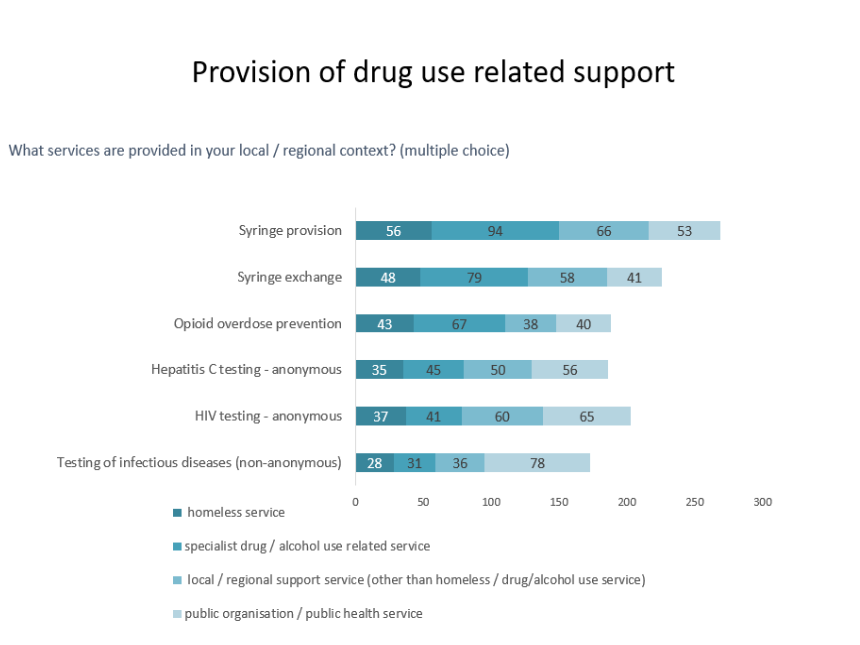
The survey conducted within the ‘Harm Reduction 4 Homelessness’ project shows that Harm Reduction has become a widely adopted approach by homeless and other support services who support people who use drugs and/or alcohol. The survey reached out to homeless services, drug /alcohol use specialist services as well as general social support and health care services. It was conducted during January and February 2020. The survey wanted to assess the current HR service provision for people who use drugs and alcohol, in particular persons in a situation of homelessness.
185 organisations from 20 countries participated of which 69% were homeless services, 8% drug / alcohol use specialist services, 17% general local / regional support services (other than homeless or drug/alcohol specialist services) and 6% public organisations, including public health services. The results suggest that, across service types (i.e. homeless services, drug use specific and general services etc.), most organisations follow a HR based approach: 82% allow access to services under the influence of drugs, a third allow drug use in their services, with similar results for alcohol use. However, few services provide drug/alcohol consumption rooms on their premises- 11% respectively 15% for drug/alcohol use. The fact that only 27% of services explicitly follow an abstinence-based approach regarding drug use (22% on alcohol use), shows that HR has been widely adopted not only among drug/alcohol use specialist services but also among homeless and general social support services.
The survey also looked at the type of support provided. Most frequently provided support by homeless services are psycho-social support/counselling, social support towards reintegration, employment support and education and vocational training. In terms of drug-use specific support, homeless services most often provide syringe provision / syringe exchange, opioid overdose prevention, Hepatitis C and HIV testing and testing of infectious diseases. Specialist drug/alcohol use related services as well as public and public health services play a key role for the provision of this type of support. Furthermore, results suggest that peer support and mobile services as well as women-specific services have become common elements of homeless service’s support provision.
Last but not least, it should be said that the results are not representative for the European homeless service sector and should be interpreted with caution as certain countries (such as Germany, Portugal, Denmark) are clearly overrepresented in the sample.
The full results will be published in the HR4Homelessness European Report in late 2020.
For more information, please contact project officer Ruth Kasper.
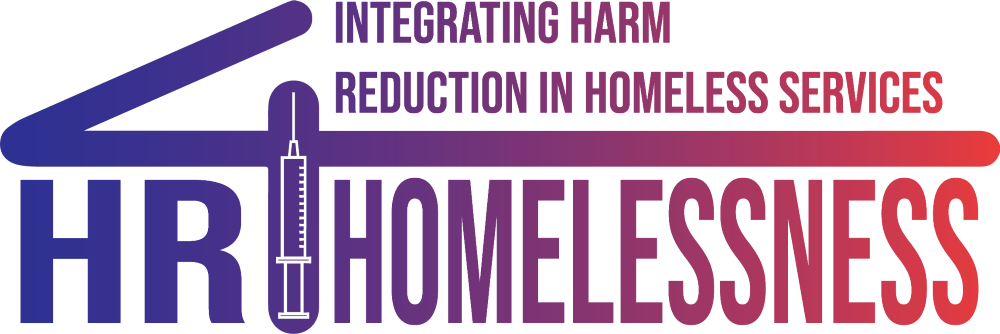 The HR4homelessness Project in a nutshell
The HR4homelessness Project in a nutshell
HR4Homelessness identified one of the most urgent challenges of homeless services which is to improve HR services for people in situation of homelessness. Until today, people in homelessness who use drugs lack access to HR services, die or get infected with life-threatening diseases. Effective HR reduction is the first crucial step to improve their health situation.
The main activities and outputs of the project:
- Develop the Harm Reduction Key Principles which support services in improving HR service provision.
- Provide a 3-days training, based on the Key Principles, targeting frontline staff working with homeless and drug use related services.
- The Country Reports will provide an analysis of the current HR service provision in the partner countries (HU, DK, NL, PT, IE), including strategies and policies, and identify common characteristics of service provision & common denominators of successful interventions.
- Run a Europe-wide survey on current HR service provision by homeless services. Results will be presented in the European Report which will also provide a comparative analysis of current strategies on HR provision in the partner countries and beyond.
- Policy recommendations for policy makers working at local and European levels
- Organize national dissemination events to establish the Harm Reduction Key Principles as best practice and disseminate the project and outputs.
All outputs will be available for free and will be published on this website as well as the dates of the dissemination events (planned for spring 2021). You can also contact the project coordinator Ruth Kasper.
HR4Homelessness started on the 1st of September 2019 and will run for 2 years. It is funded by the Erasmus+ Programme. The project involves organisations from the homeless, drug use related and human rights sector: FEANTSA (Belgium/EU- coordinator), Correlation Network / Rainbow Group (NL), Rights Reporter Foundation (HU), Simon Communities of Ireland (Ireland), Health Team City of Copenhagen (DK), Norte Vida (PT) and SMES-B (Belgium) as associate partner.



